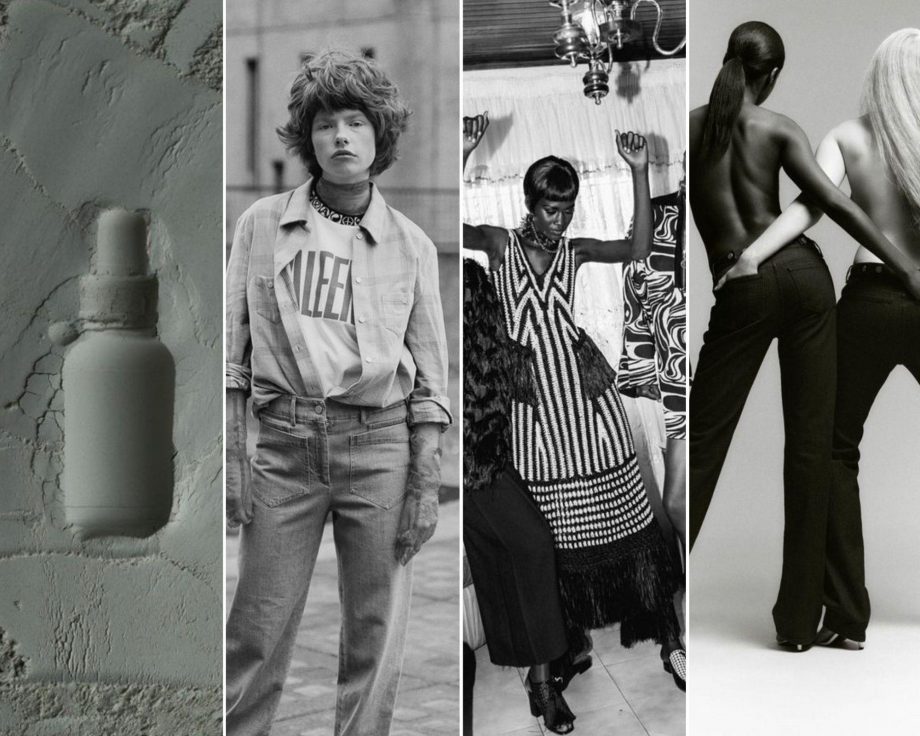The slow fashion movement aims to challenge the fashion industry’s fast-paced, disposable culture. Promoting ethical, sustainable, and mindful methods of clothing production, distribution, and consumption is at the heart of slow fashion. Slow fashion is an answer to the fast fashion industry’s harmful effects on the environment and the people who make our clothes. The cheap, disposable clothing that is produced quickly and sold at low prices is the hallmark of the fast fashion industry, this model creates a lot of waste and harms the environment by constantly introducing new fashions and styles. Paradoxically, slow style underlines better standards without ever compromising, it places an emphasis on clothing that is well-made, long-lasting, and timeless, as well as that reflects the wearer’s individual style rather than fads. Fair labor practices, the utilisation of eco-friendly materials, and the reduction of waste during the production process are also endorsed by slow fashion. Another advantage of slow fashion is that it encourages us to choose our clothes with greater consideration. Slow fashion encourages us to think about how our clothing choices affect the environment and the people who make it, as opposed to mindlessly consuming fashion trends. We can create a wardrobe that is both sustainable and reflects our personal style by investing in pieces that will last for years and choosing quality over quantity.
Some of the brands that stand out in the slow fashion movement are:
ALYX Visual is the sub-line of the 1017 ALYX 9SM by Matthew Williams. Williams has mentioned considering sustainability when designing ALYX collections, but “Visual” is different. The cotton jersey fabric for the line is made in collaboration with Recover Tex, a Spanish recycler that upcycles yarn from old clothes and waste from the ocean. After that, this yarn is spun into a fabric for t-shirts and hoodies. The brand is well-known for both its dedication to environmental responsibility and its distinctive aesthetic, which combines high-end fashion with streetwear. Recycled materials and upcycled fabrics are among the environmentally friendly materials and manufacturing processes utilized by ALYX Visual. Additionally, the company has taken steps to lower its carbon footprint and focuses on reducing waste throughout its supply chain.
Ali Hewson and Bono established the sustainable fashion brand EDUN in 2005. The brand’s main goal is to promote trade in Africa and encourage the growth of sustainable industries on the continent. In order to acquire materials and create its collections, EDUN collaborates with African manufacturers and suppliers. The company is committed to making use of environmentally friendly production techniques and sustainable materials like recycled polyester and organic cotton. The Conservation Cotton Initiative, which encourages the use of organic cotton and sustainable farming practices, and the EDUN Live series, which promotes African musicians and artists, are two other social initiatives that EDUN supports in Africa. In general, EDUN is a brand that focuses on supporting African communities and promoting sustainable development on the continent while also combining fashion and sustainability.
Filippa Knutsson established the Swedish sustainable fashion brand Filippa K in 1993. The goal of the company is to produce timeless pieces of high quality that are built to last and have a minimal impact on the environment. Filippa K is committed to using environmentally friendly production methods and sustainable materials like organic cotton, linen, and wool. Additionally, the company encourages its customers to recycle and upcycle their clothing as part of its circular fashion approach. Filippa K is committed to ethical labor practices and ensures that all production workers are treated fairly and paid a living wage in addition to its sustainability initiatives. Overall, Filippa K is a brand that creates timeless and versatile designs that can be worn for years to come while putting sustainability and ethical practices first.
Margate, England-based sustainable skincare and fragrance company Haeckels, founded by Dom Bridges in 2012 with the goal of making products that are not only efficient but also long-lasting and kind to the environment. In its products, Haeckels uses natural ingredients that are sourced locally, like seaweed, sea buckthorn, and sea lavender. The brand likewise centers around lessening its natural effect by utilizing recyclable and biodegradable bundling, as well as eco-accommodating creation strategies. Haeckels is committed to supporting local communities and protecting marine life in addition to its sustainability initiatives. In addition to donating a portion of its profits to various environmental organizations, the brand participates in beach cleanups and marine conservation initiatives. In general, Haeckels’ skincare and fragrance products combine efficacy, sustainability, and a dedication to community and environmental preservation.
These are just a few of the many slow fashion brands that are committed to ethical production methods and sustainability. By supporting these brands, we can make a positive impact on the fashion industry and reduce our environmental footprint.
Love, MJ

